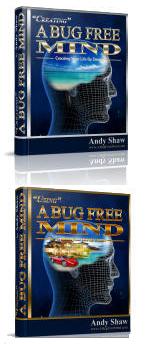My on-line friend Colin Wee, 6th Dan TKD, has proposed an Anti-Bullying Blogging Carnival. As I used to be bullied a lot back in far distant school days, I thought this was a good idea, so this is my contribution to the Carnival.
The obvious answer the title question is of course, YES, traditional martial arts can help somebody who is being bullied; but there are some limitations that need to be taken into consideration.
For somebody just starting their training, traditional martial arts can take quite a while to learn up to a proficient standard. Something like Kickboxing is simpler and can be learnt to a proficient level considerably quicker. Confidence is quickly gained when hitting an actual target (like focus mitts or punchbag). Traditional martial arts may have more depth and include a much greater range of techniques and capabilities (grappling, pressure points, grab releases, etc); but the emphasis on perfecting technique makes them more difficult and slower to learn.
For somebody who is being physically bullied NOW, taking up traditional martial arts alone may be a bit slow to produce results.
Another factor which is much more important however is the pre-fight build up and the emotional response to the threat of violence, which is often overlooked in traditional martial arts. A fight can be won or lost before the first punch/kick is even thrown by one person intimidating the other and undermining their confidence. Bullies routinely use this tactic as part of their build up; be it name calling, threatening, minor pushing around; all testing the response and intimidating their victim into a feeling of helplessness and fear. This loss of confidence and fear leads to hesitations and even freezing at a critical moment making it even easier for the bully to dominate in a physical conflict as the victim can become too scared to even fight back.
Simplistically put, the bully psyches them-self up, whilst the victim is psyched down.
Some instructors who have been in a number of altercations in their younger days assume that the pre-fight stage is a matter of common sense once you know how to fight. It may be common sense to somebody who has actually had experience at real fighting. But it is not common sense to somebody who has not been in that position before and hasn’t had that experience. It certainly is not common sense to somebody who has been routinely bullied and has developed an ingrained behaviour pattern of backing down and acting passively when threatened, they just don’t know anything else. When under this type of pressure, blood goes to the limbs (for fight or flight) and away from the brain. Therefore the brain does not think very clearly and relies on instincts and experience. If the last experience when being bullied was to act passively, then the chances are that they will act passively again. Not always, sometimes they snap and go for it, but in most cases they will do more or less the same as before.
Many years ago, whilst rising up through the coloured belts in my Karate, I trained hard, was naturally flexible and had good technique for my grade. However, when sparring or entering in a competition I would often not do very well, even when I was faster, sharper and had better technique than the person that I was facing. I realised later that it was because I was not very aggressive and had a passive nature. Yes, I was bullied a lot at school and no, I didn’t really stick up for myself.
So if I was not doing well in the relative safety of sparring and competition, what would have happened if I’d been involved in a street fight?
Many traditional martial arts give little consideration to the pre-fight stages of the conflict and how to deal with it emotionally or psychologically. Many systems do include pre-arranged sparring routines which can be used to work this area and include emotional intensity/pressure. When you face somebody who is going to come in at you fast and strong and if you don’t block, side step or evade, they’ll take your head off; then you do get used to dealing with the adrenaline and fear but it can take a long time.
Shortly after passing my black belt I was sparring with my Sensei. Whilst he obviously got the better of me, I stood my ground quite well and made it work for it. He said to me afterwards with a little smile, “what happened to that green belt that I used to be able to kick all around the dojo”?
Traditional martial arts training had made a big difference to me mentally and emotionally and by the time I had obtained my black belt I had overcome much of my limitations caused by my passive nature. However, it had taken me nearly 4 years to get there. For somebody who is being bullied NOW, that is a long time.
This is why I am in favour of reality based training which uses scenarios to de-sensitize people to the threats, abuse and taunts, and teaches them to function even under the effects of adrenaline and fear. Humans always learn much more quickly when in an emotional state, which is why reality based training gets very quick results and change that freeze reaction to an active response. As mentioned above, when under pressure the brain losses blood and relies on experience. If you can simulate a realistic experience where the victim takes action (be it assertive verbal behaviour to dissuade an attacker, or actual physical fighting back), then that becomes the default experience the next time that person is in that situation.
One of the first times I did this kind on training there was a young lady who was a reasonably high grade in Taekwondo. When the trainer (as part of the training scenario) venomously called her a “f***ing bitch”, she started to cry. She had obviously been through some abusive experiences in the past, but her traditional martial arts training had not prepared her to emotionally deal with this simple abuse and she went straight into the old ingrained behaviour pattern. However, she continued the exercise and learnt a new response to take away with her, so I applaud her courage for sticking with it. She took a bigger step forward that day than the rest of us.
I would warn however, that although learning under heightened emotional pressure produces quick results, it also hard-wires the response. So if you overcome the “freeze” response but swing wildly, then the wild swinging could become your hard wired (and not very effective) response. This is why I believe that scenario based training (reality based training) is very beneficial, but it should be used sparingly and should NOT become the default training method. Traditional martial arts are the best way to obtain the best long term results, but if you don’t have the time, then you need a little extra.





